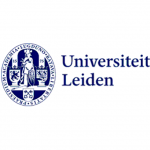
ΑΙhub.org
Using AI to help process earth observation data

From satellite images, to measurements of temperature and pressure, scientists collect a lot of information from earth observation. AI methods can help them to analyse this data faster. Julia Wasala, a PhD student at the Leiden Institute of Advanced Computer Science (LIACS), is passionate about the environment and wants to help scientists save time when analysing data: “By using AI and especially machine learning, processing data for earth observation is easier.”
How can AI help scientists?
In my research, I apply machine learning systems to Earth observation (EO) datasets. This makes commonly used AI models more accessible for EO scientists. Besides this, it saves a researcher precious time by automatically designing models based on what EO data will be analysed. A big plus of using machine learning is that it has a much higher performance than a human, who would have to find good models through trial and error.
How did you get involved in this topic?
I am very passionate about our environment, and from my background in astronomy I have a familiarity with and love for working with images. I wrote my master’s thesis on the same topic and I greatly enjoyed that. I feel there is still a lot to gain in this field, and that gaining new insights can have an impact on climate research.
How can AI help climate research?
The methods I am developing are targeted at scientists that work with EO data, where we have more data than what we can process manually. By using AI, and especially machine learning, processing data is easier. For example, if you measure methane emissions on a satellite, you measure how much methane is in the atmosphere, and you want to know how much is emitted at the Earth’s surface. There are physics models for calculating this, but they have some uncertainty. By using AI models to process and compare data, it’s possible to reduce that uncertainty. This means you have a greater understanding of the relationship between methane in the air and methane emissions. The understanding of these kind of mechanisms can help identify factors that have a major impact on climate.
So a deeper understanding of environmental mechanisms makes it easier to combat climate change?
Yes, but it is not only that. Other AI models, such as a model that can automatically detect large emitters, can also support policy makers in their decisions. For example, if it turns out that many coal mines that are no longer used are still causing a lot of emissions, policies can be put in place to tackle this. My ultimate research goal is that machine learning can be used to improve the entire process of EO analysis, so people can make better use of all EO data available.
About Julia

|
Julia Wasala is PhD Student in the ADA research group. Prior to this, she obtained a bachelor’s degree in astronomy and a master’s degree in computer science, both at Leiden University. |
The ADA research group was founded in 2017. It pursues the development of AI techniques that complement, rather than replace, human intelligence. You can follow the project on Twitter: @AutoAI4EO. You can read more about Julia’s research on the ADA blog. There, she is writing a series of blog posts on Machine Learning for Earth observation.









